
Buh-bye! Linux Mint finally kills its pointless KDE Edition
Linux Mint is a fine Ubuntu-based operating system, although I am not sure it needs to exist anymore. After all, its popularity is largely thanks to the historic disdain for Canonical's Unity desktop environment. With the Unity DE now dead, fewer people will seek out the alternative that is Mint.
While both the Cinnamon and Mate versions of Linux Mint are decent choices for computer users, there was one version that was always utterly bizarre -- the KDE Edition. Don't get me wrong, KDE is a fine environment, but Kubuntu already exists. Having a version of Mint using KDE was redundant and confusing. Thankfully, today, the Linux Mint team announces it is finally killing the KDE edition.

Ubuntu 17.10 'Artful Aardvark' ditches Unity for GNOME
Six months after introducing Ubuntu 17.04 "Zesty Zapus," Canonical has released a new version of its popular Linux-based distribution. Ubuntu 17.10, also known as "Artful Aardvark," arrives with a host of major changes, including the highly-anticipated switch to a new desktop environment and display server.
Canonical has shipped the alpha and beta versions of Ubuntu 17.10 with Unity, but the first official release now comes with GNOME 3.26 as the desktop environment of choice. Wayland is the default display server, replacing Mir. And that is not all that is new.

Samsung unveils 'Linux on Galaxy' for DeX -- run Fedora and Ubuntu on your Note8?
For whatever reason, people seem to forget that Android is Linux. Remember, folks, Linux is just a kernel -- not an operating system. Actually, Android is the world's most popular such distribution. Even the father of Windows, Mr. Bill Gates, now runs his life from Linux by way of Android.
That's why Samsung's new "Linux on Galaxy" -- which it unveiled today -- is sort of maddening. Don't get me wrong, the possibility of running a desktop Linux distro using your phone's hardware is amazing, but Samsung smartphones are already running Linux! In other words, the name of the project is sort of a misnomer that could confuse consumers, but I digress.
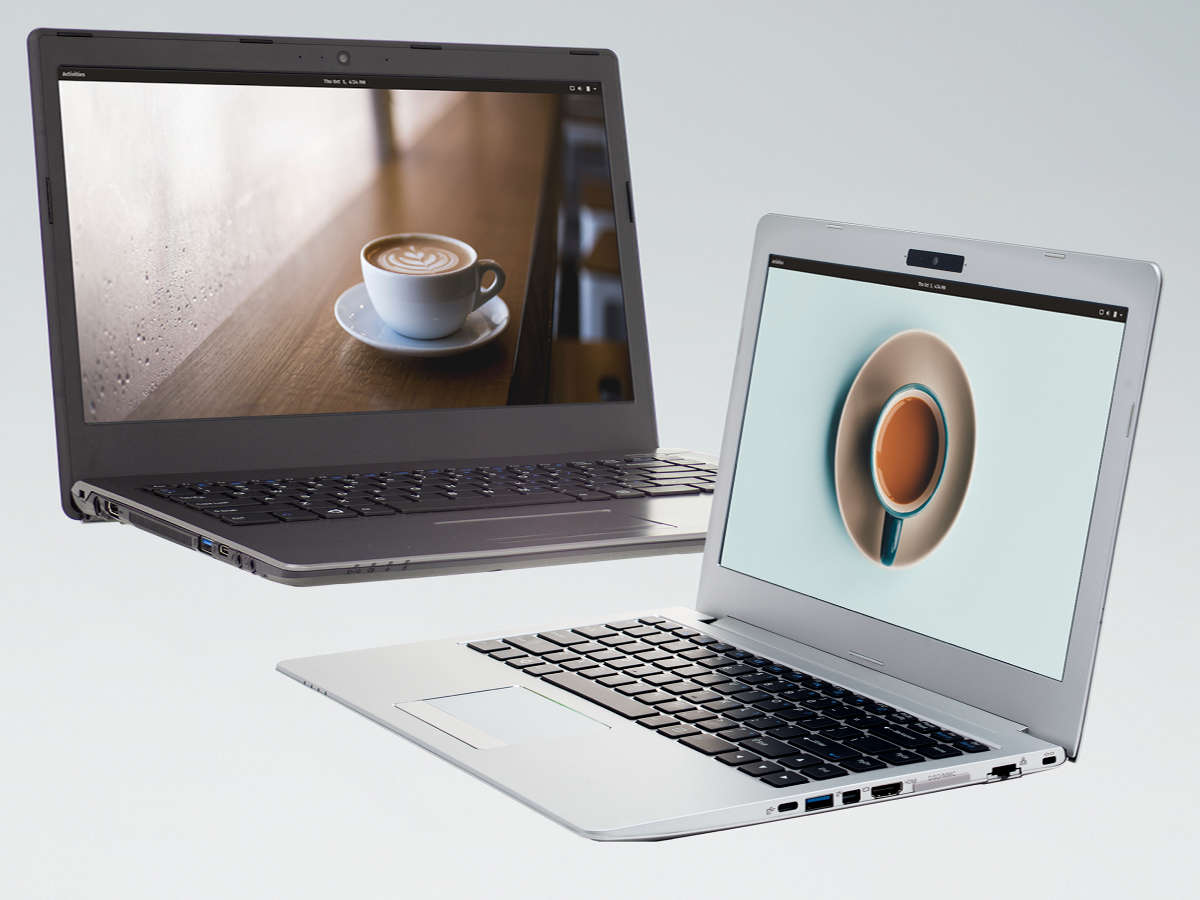
System76 'Lemur' and 'Galago Pro' Ubuntu Linux laptops get 8th gen Intel Core CPUs
Earlier today, Microsoft unveiled the all-new Surface Book 2. People all over the world are probably very excited about the device. Oh, what? You aren't excited? You mean, you don't want a super-expensive non-upgradeable Windows 10 tablet that plugs into a keyboard? What a shocker! All joking aside, that is very understandable. After all, most consumers would be better served by a traditional laptop.
If you don't want a gimmicky Windows 10 tablet, a laptop running a Linux-based operating system, such as Ubuntu, is a wise alternative. System76 is one of the best sellers of these types of notebooks, and today, two of its most popular models are getting huge upgrades. You see, both the Lemur and Galago Pro laptops now have 8th generation 'Coffee Lake' Intel Core CPU options.

Privacy lives! Purism Librem 5 Linux smartphone exceeds crowdfunding goal
As companies continue to violate our privacy, such as Microsoft with the latest version of Skype for iOS and Android, we slowly become desensitized to it. In other words, as time marches on, people slowly become more and more accepting of being spied on. This is tragic, as our private information has value, and many will simply turn it over in exchange for a free service or other nonsense.
Purism is a company that is fighting for your rights -- regardless of whether or not you appreciate it. The company maintains the privacy-focused Pure OS Linux distribution, plus it manufactures very secure laptops with radio, webcam, and microphone hardware kill-switches. Purism also wants to produce a secure Linux-based smartphone, called Librem 5. Unfortunately, the company needed $1.5 million to get started. Well, folks, I am elated to say that earlier today, Purism met and exceeded that goal! In other words, it looks like the Librem 5 will become a reality.

Debian 9.2 'Stretch' Linux-based operating system is here -- download the distro now
Debian is one of the most important Linux-based operating systems. It is a great distribution in its own right, but it is also the foundation of many other distros. For instance, Ubuntu is largely based on Debian, and then many operating systems are based on Ubuntu. If you were to look at a Linux "family tree," many roads would lead back to the wonderful Debian.
The most recent version of Debian is 9.x, code-named "Stretch". The second point release for the operating system, version 9.2, is now available. There are many bug fixes -- plus significant security patches -- so despite being a point release, it is still very important.

Purism exceeds $1 million in funding for Librem 5 Linux-based smartphone
Consumers don't care about privacy anymore, right? Wrong -- some actually do. True, we are systematically being conditioned to surrender our private information and rights nowadays, but some people are still fighting the good fight. In many ways, both the Linux and open source communities can be seen as the foundations of internet privacy.
The most popular mobile operating system on the planet, Android, is already based on Linux, but with Google in charge of it, many consumers cannot depend on it for privacy. With that said, Purism is planning to fight the impossible fight against Android and iOS with the "Librem 5" smartphone. This is a device that will run a privacy-focused Linux-based OS called "Pure OS," but the hardware is wide open for any OS, really. Purism is trying to raise $1.5 million through crowdfunding, and earlier today, it reached a significant milestone -- $1 million! Maybe the fight isn't impossible after all...

Fedora 27 Beta Linux distribution now available with GNOME 3.26
Last week, Korora 26 was released. This is a Linux distribution based on Fedora 26, which was released back in July. That's the problem with using an operating system that is based on another operating system -- it can seem like you are never truly up to date. Case in point, today, Fedora 27 Beta sees release.
True, this is pre-release software, but recent Fedora Beta releases have been very stable, so it should be fine to run on a non-production machine. Just be aware that there can be bugs and the potential for data loss. If you are comfortable with using a beta operating system, you are in for quite the treat. Fans of Fedora can finally experience GNOME 3.26 -- the default desktop environment on version 27 of the distro. In addition, Fedora 27 Beta now supports TRIM on encrypted solid state disks.
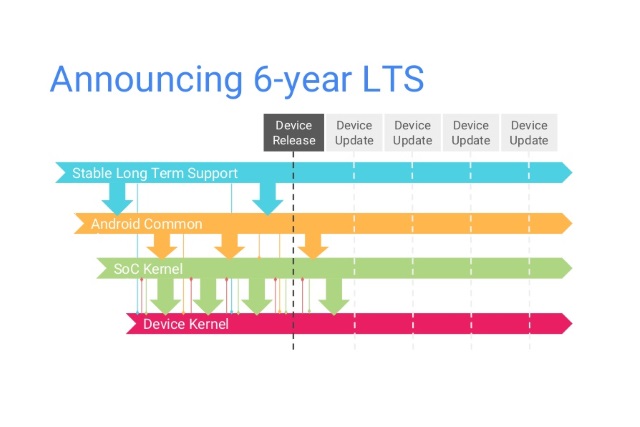
Great news for Android: Linux kernel Long Term Support triples to 6 years
As Android is based on Linux, the existing two-year lifecycle for Long Term Support (LTS) kernels is restrictively short. But, during a presentation about Android's Project Treble, Google's Iliyan Malchev announced that this is going to -- appropriately -- treble to six years.
This will address what has become a serious issue for chip-makers. During the production process, they need to pick the most recent LTS kernel to work with to ensure longevity, but the length of time it takes to design and produce chips means that much of the two years of support is used up by the time of release.
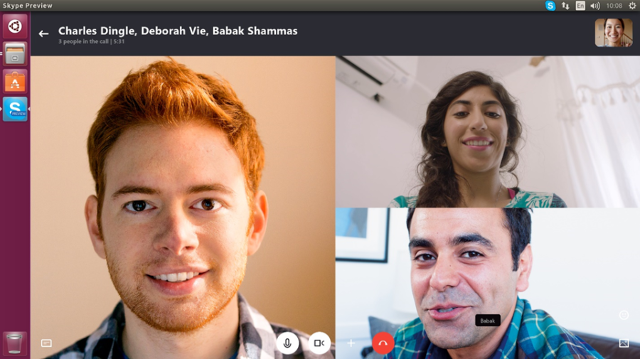
Microsoft releases refreshed preview of 'Skype for Linux' for Ubuntu, Debian, Fedora, and more
Skype is an important communication service thanks to its cross-compatibility. There are clients for Mac, Windows, Android, iOS, and even desktop Linux. It may not offer the best user experience, but it is passable, making it a solid choice for those that need to keep in touch across long distances.
Today, Microsoft releases a refreshed preview of Skype for Linux. There are both DEB and RPM packages available, making it easy to install on, say, Ubuntu, Debian, or Fedora. In fact, I successfully installed it on Pop!_OS earlier today. Believe it or not, the new interface is quite nice, making it something I could possibly enjoy using on my Linux machine.

Ubuntu Linux 17.10 'Artful Aardvark' Beta 2 now available to download
Fall is officially here, and while some people get excited for pumpkin spice lattes and falling leaves, other folks get excited about something far nerdier -- Ubuntu. Yes, every October a new version of the Linux-based operating system is released. This year in particular is very significant, as with Ubuntu 17.10, GNOME is replacing Unity as the default desktop environment.
Today, Beta 2 of Ubuntu Linux 17.10, code-named "Artful Aardvark," becomes available to download. This second beta is the final beta as well, which signals that the operating system is almost ready for primetime.
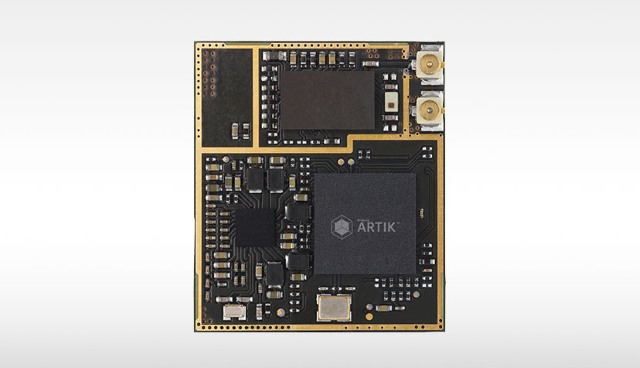
Samsung selects Ubuntu 16.04 as primary Linux distro for some ARTIK IoT modules
Next month, Ubuntu 17.10 will be released. Even after that release, version 16.04 will remain the most recent LTS version. If you aren't familiar, LTS stands for "Long Term Support," which quite literally means it is supported by Canonical for a longer period of time. For instance, Ubuntu 16.04 will be supported until 2021, while the newer 17.04 is only supported until 2018.
Today, Canonical announces that Samsung has selected version 16.04 LTS of the operating system as the primary Linux distro for some of the ARTIK internet of things modules. This is a smart choice by Samsung, because long support is preferable to bleeding edge for an IoT device.

System76 Pop!_OS Beta Ubuntu-based Linux distribution now available to download
Next month, a new era of Ubuntu begins. Unity is dead, and GNOME 3 takes over as the default desktop environment. While this change was for the best, it was still shocking for many. For a company like System76, for instance, that sells computers pre-loaded with Ubuntu, this was problematic. Why? Well, the company essentially lost control of the overall user experience by relying on vanilla Ubuntu. It was being forced to follow Canonical's path.
To solve this, and regain some control, System76 has been developing its own operating system called "Pop!_OS." No, it is not reinventing the wheel here -- it will still use Ubuntu as a base, and GNOME will be the desktop environment. The company is customizing the operating system, however, with things like fonts, themes, and icons, to create something truly unique. This could lead to an improved user experience. Today, the first official beta of the operating system becomes available for download.
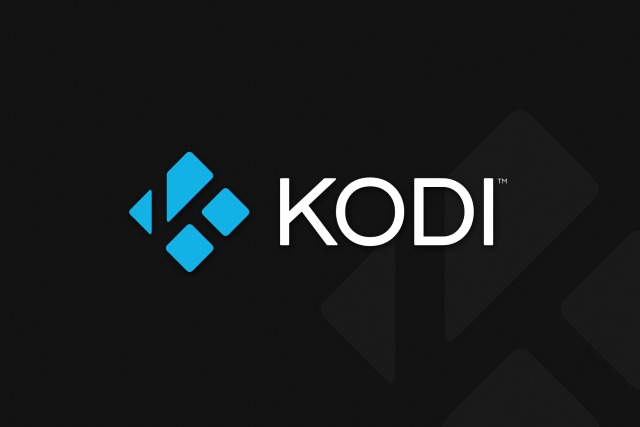
Download latest Linux-based LibreELEC Krypton -- Kodi addons like Exodus and Covenant will work
The Kodi media center is facing a lot of scrutiny in the media lately. Some people feel that the negative coverage is "fake news." It is important to remember that Kodi is not illegal. With that said, it can be made so with piracy-related addons. Since Kodi is open source, even if the developers removed the ability to install addons, other people could easily fork the code to add it back. Pandora's box cannot be closed.
Many people that use Kodi do so with a dedicated Linux-based operating system, such as the excellent LibreELEC. You see, these distros exist only to run the open source media center, meaning there are no resources wasted on unnecessary things. Today, LibreELEC (Krypton) v8.1.2 BETA sees release. You can install it immediately, and don't worry -- your addons like Exodus and Covenant will work fine.

Korora 26 'Bloat' Fedora-based Linux distro available for download -- now 64-bit only
Fedora is my favorite Linux distribution, but I don't always use it. Sometimes I opt for an operating system that is based on it depending on my needs at the moment. Called "Korora," it adds tweaks, repositories, codecs, and packages that aren't found in the normal Fedora operating system. As a result, Korora deviates from Red Hat's strict FOSS focus -- one of the most endearing things about Fedora. While you can add all of these things to Fedora manually, Korora can save you time by doing the work for you.
Since Korora is based on Fedora, it always lags from a version perspective. For instance, Fedora 26 was released in July, but Korora 26 is only seeing a release today. With version 26 of Korora, the big news is the fact that it is now 64-bit only -- 32-bit development for the operating system is dead. It is also the first version of the OS created with "Canvas" -- a new tool designed to simplify the process of creating the Korora operating system from Fedora.
